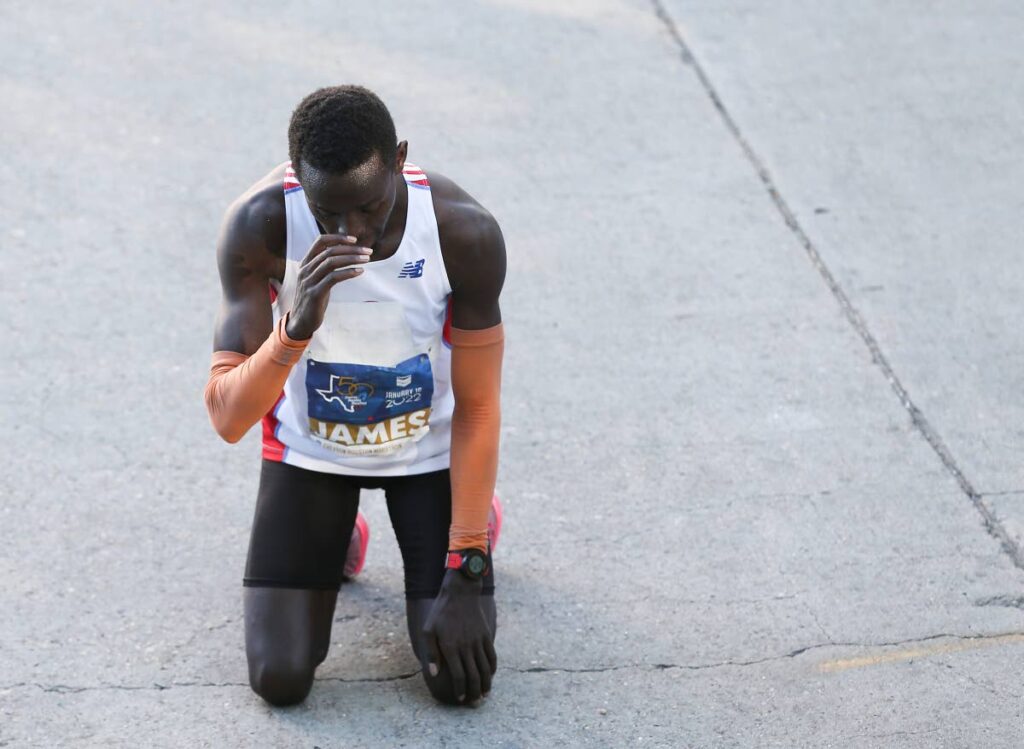IN running, and particularly marathon or longer-distance running, there is a concept known as “the runner’s wall.”
If you’re an avid road banton you know exactly what I’m talking about, but for those who are not familiar: it’s a depletion of glycogen (carbohydrate/energy) stores within one’s muscles (usually around the 20-mile mark), causing severe physical and mental fatigue.
The wall can often force runners to slow down the pace or even come to a walk. This phenomenon is most commonly seen in long-distance runners, for that very reason, the sheer distance they cover.
You might be wondering why I’m going on about the runner’s wall seeing as this isn’t really an athletics column, but the beauty of sport is that it provides us with very tangible examples of how we might feel from time to time throughout the training and competition processes and even life.
Hitting the wall, either physically or metaphorically, is certainly something all athletes and indeed individuals will experience throughout their lifetime. Be it because of the length of time between competitions, the time it takes to secure a contract or scholarship, the process of trying to progress from junior to senior elite level, trying to find a new job, trying to save enough to own a home and the list goes on…We as human beings always have to be patient and “cover the distance” to get to the finish line. So where am I going with all of these wall metaphors? Although we cannot stop from tiring and hitting the wall we can influence how soon we hit it and how long the experience lasts- through our thought patterns and habits.
Research has shown that marathon runners who fixate their attention too heavily on “inward monitoring,” (body monitoring) oftentimes hit the wall sooner and for longer. This might seem strange but overly examining how you feel can start to create problems you wouldn’t otherwise notice. This is due to a feedback loop between two brain regions: the anterior cingulate cortex (ACC), and the insula. The ACC is responsible for what you’re paying attention to, and the insula plays a role in sensing pain. If the ACC spends too much time talking to the insula, then it can magnify bodily sensations that you would otherwise ignore (including pain).
Similarly, as athletes and individuals, we can spend far too long monitoring “the aches and pains” of our athletic/life journeys, the obstacles in the way, the fatigue of the process etc. which can force us to feel deflated, demotivated and hit to wall sooner and lose momentum faster. Now, I am by no means endorsing ignoring difficulty and how it impacts your thoughts and emotions, but we mustn’t ruminate.
Instead, we can acknowledge the experience we are having and then begin to shift our focus to the things within our immediate control and influence (control the controllable). Quite like runners shifting their attentions from the aches and pains to perhaps their breathing, pace, music or outward environment so too we as individuals can focus on various smaller processes such as intentions for your next training session, how diligent you are with your daily recovery process, ensuring you’re taking in the best fuel for your workload, getting sufficient rest etc…and understanding how all of those things feed into your ultimate goal.
Another factor you might consider is expectation. Your brain is powerfully influenced by expectation and that can certainly work against us if we are not careful. We can sometimes set ourselves up to hit the wall without even realising simply because we anticipated it. What I mean by this is the negative thinking that can feed into our expectations. “The competition is so far away.” “I’m never going to make it at the senior level.” “I don’t know if I can last training for an entire Olympic cycle.” These thoughts can certainly set the trap for the brain and ultimately the body to fall into and hit the wall. We must always practice self-awareness and find ways to increase our EQ to understand how our thoughts affect our emotions, mood, behaviours and ultimately our performances.
Feel free to submit any questions you might have to alexandriaolton@outlook.com

